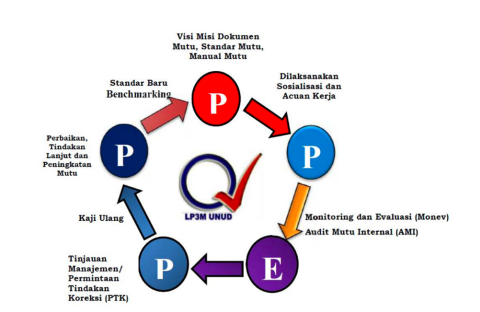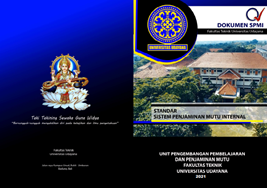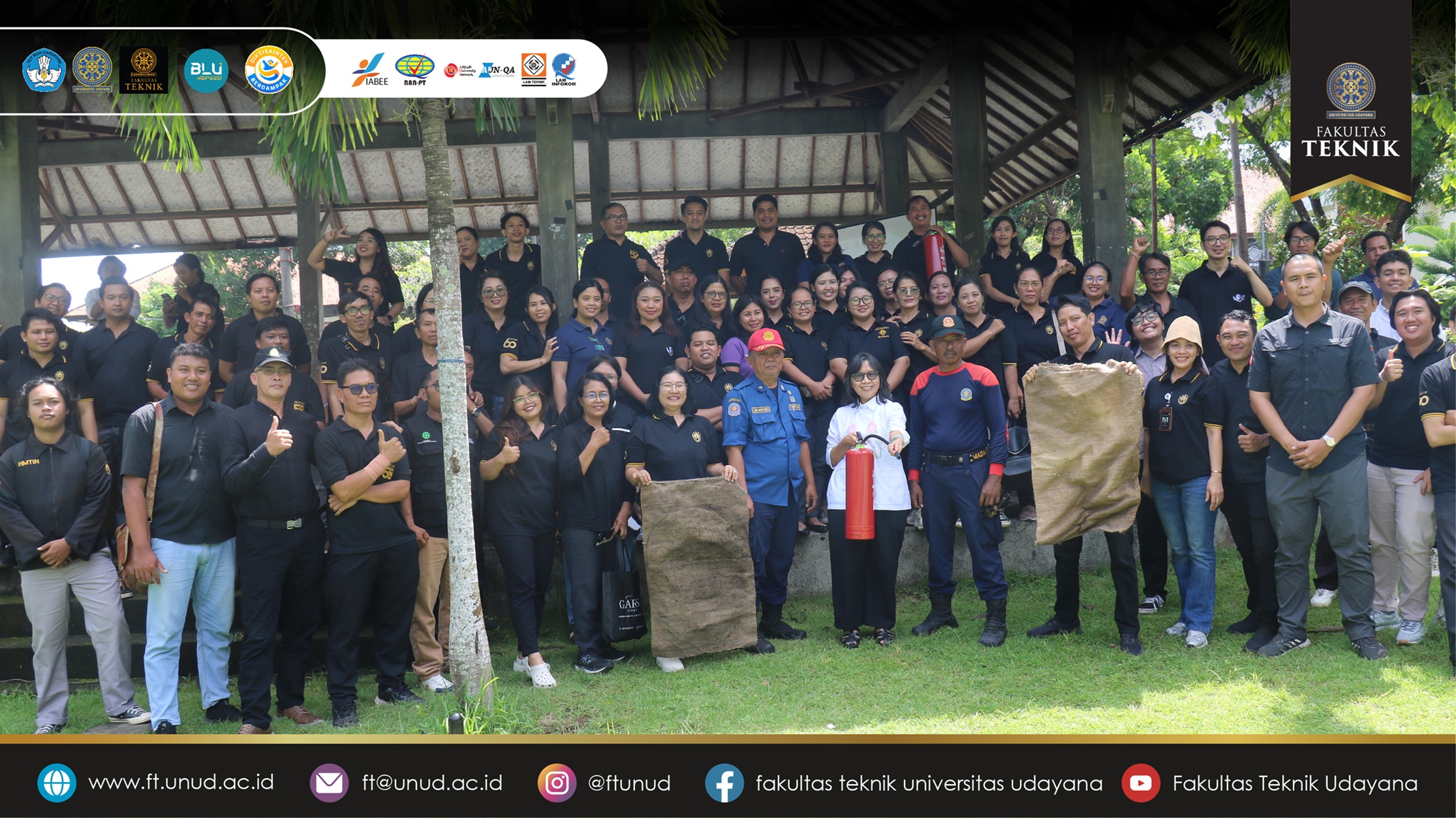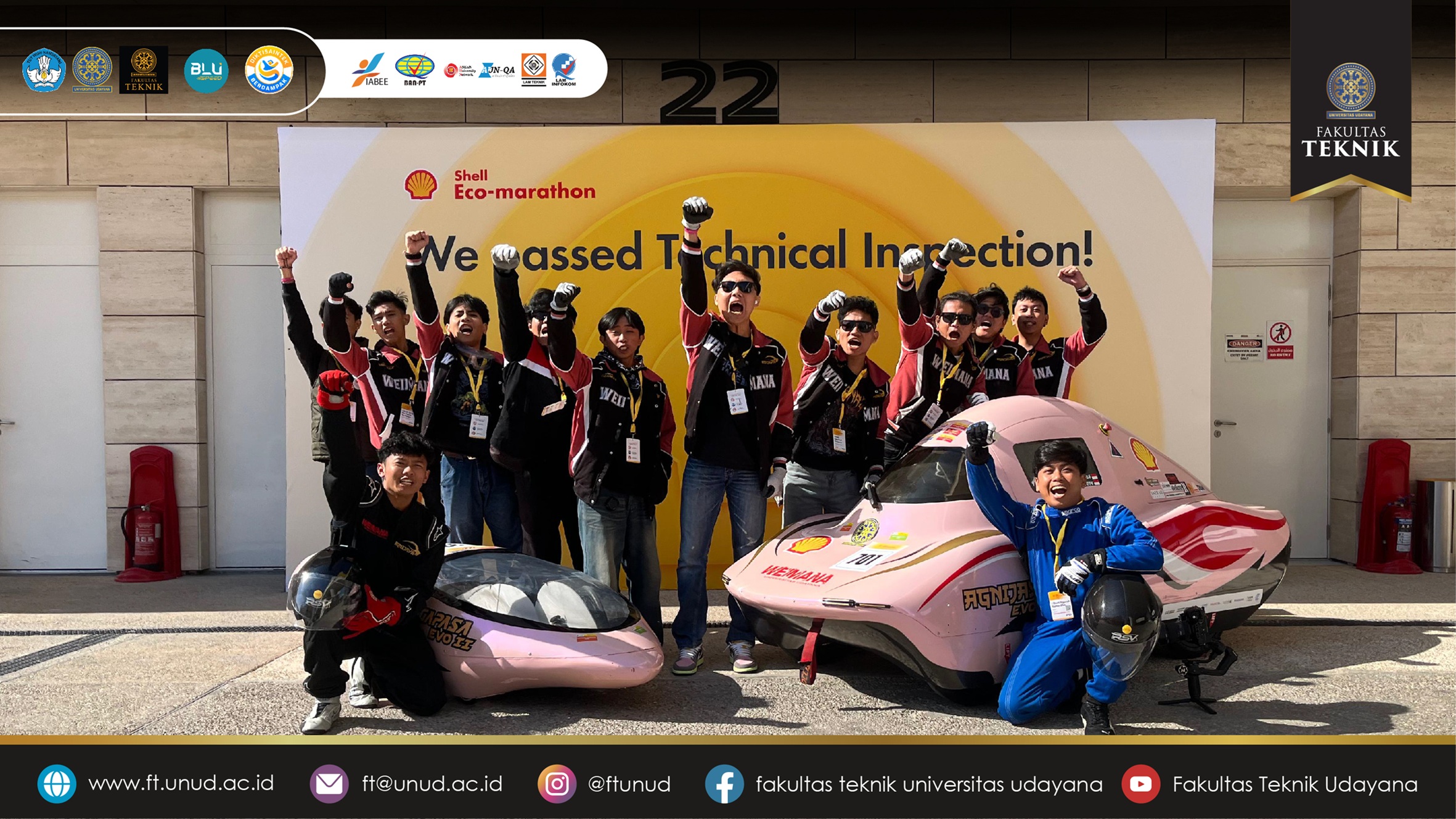Internal Quality Assurance System
The Internal Quality Assurance System Document (SPMI) of the Faculty of Engineering is a PPEPP cycle whose implementation is carried out by the Faculty UP3M. SPMI management at the Faculty of Engineering Unud is a management oriented and based on quality assurance. This means that the role of quality assurance in implementing SPMI in the management of higher education is consistently seeking quality achievement in all aspects, namely aspects of input, process, output, and outcomes. To ensure that the implementation of academic and non-academic activities can run effectively and beneficially and ensure the implementation of education in accordance with the vision, mission, goals and objectives of the Faculty of Engineering Unud, the management of SPMI of the Faculty of Engineering Unud is designed using a quality control management model, namely Determination, Implementation, Evaluation , Control, and Improvement (PPEPP) of the Standards of the Faculty of Engineering, Unud. The above stages sequentially form an SPMI cycle that always moves dynamically and continuously in an upward direction, namely towards continuous quality improvement.

The implementation of the PPEPP model with Kaizen management in the quality assurance management of the Faculty of Engineering Unud is arranged in five stages as follows.
1. Determination of Standards for the Faculty of Engineering Unud The setting of standards for the Faculty of Engineering Unud is the determination of all standards in the administration of higher education at Udayana University which as a whole forms the SPMI of the Faculty of Engineering Unud. Standard setting is not only interpreted as ratification or application of the Unud Faculty of Engineering Standards, but starting from the formulation stage of the Unud Faculty of Engineering Standards. The standard formulation of the Faculty of Engineering Unud is carried out by the Ad Hoc Team which is authorized by the university leadership, and the quality assurance agency as the coordinator or facilitator for the formulation of the Standards of the Faculty of Engineering Unud with the assistance of all parties or units at Udayana University. The standards of the Faculty of Engineering Unud are set through the Rector's Regulation after obtaining approval from the Senate of the Faculty of Engineering Unud.
2. Implementation of the Unud Faculty of Engineering Standards FT Unud runs every Unud FT Standard which has been stated in writing in the SPMI so that the Unud Faculty of Engineering Standards can be met. The party implementing the Unud Faculty of Engineering Standards is the audience or subject listed in the Unud Faculty of Engineering Standards statement. This subject can be different depending on the content of each Unud Faculty of Engineering Standards. Subjects can be Faculty leaders (Dean and Deputy Dean), Study Program Coordinator, Head of Laboratory, Lecturer, Head of Administration, Head of sub-section, education staff, and students.
3. Evaluation of the Implementation of the Standards of the Faculty of Engineering Unud In the third stage of the SPMI cycle, Udayana University and all units within it must evaluate or assess or assess the process, outputs, and results of the implementation of each Standard of the Faculty of Engineering Unud in SPMI. When viewed from the point of view, evaluation of the implementation of the Standards of the Faculty of Engineering Unud can take the form of: 1) Diagnostic evaluation, which is an evaluation that aims to find out weaknesses or obstacles that can hinder the implementation of the standard contents and take the necessary steps to overcome these weaknesses. BAN-PT: Self Evaluation Report for Undergraduate Industrial Engineering Study Program FT Unud 19 2) Formative evaluation, namely evaluation that aims to monitor (monitoring) the standard implementation process to take control actions, if errors or deviations are found which result in the standard content not being met, or strengthening achievement of standard implementation. 3) Summative evaluation, which is an evaluation that aims to analyze the final results of the implementation of the standard so that conclusions can be drawn, among others about the effectiveness, success, and impact or outcomes of the implementation of the standard, including internal audit and accreditation in this evaluation. In the management of SPMI, Faculty of Engineering, Unud, evaluation and control are two important and strategic activities to ensure that the organizational goals can be achieved. The implementation of the evaluation of the implementation of the Standards of the Faculty of Engineering Unud is carried out by four parties who have the aim of increasing standards, namely: a. Monitoring is an evaluation evaluation that is carried out while the activity being assessed is still running, or is referred to as formative evaluation. This activity is organized by the event organizing unit. b. Evaluation at the end of the activity which is also called summative evaluation. Included here is a self-evaluation, namely an evaluation carried out by the implementer of each standard or by his superior structural officer. c. Internal Quality Audit (AMI), which is an internal evaluation conducted by the Institute for Learning Development and Quality Assurance (LP3M) of Udayana University. d. Accreditation/certification is an evaluation carried out by an external party from Udayana University, such as BAN-PT, Independent Accreditation Institute, or International Accreditation/Certification Institute.
Dokumen SPMI:




UDAYANA UNIVERSITY